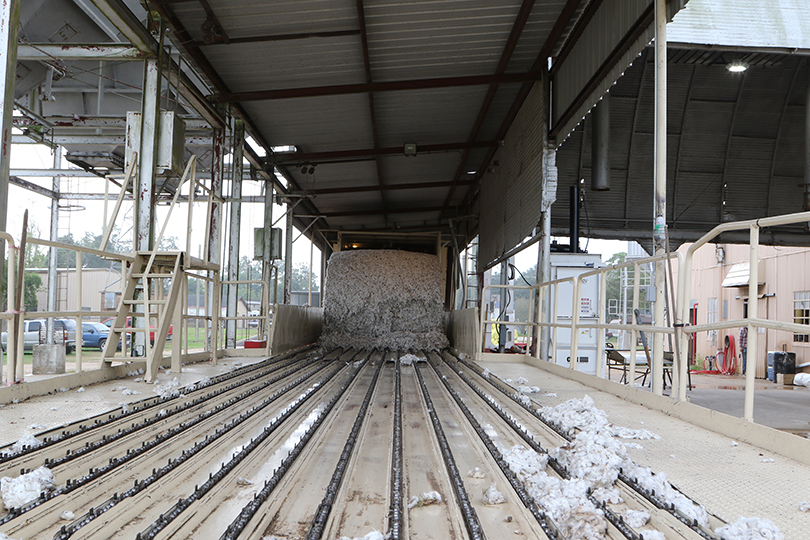Texas cotton gins are busy processing the state’s cotton crop, with some gins still dealing with wet modules from Hurricane Harvey rainfall.
“Once that cotton gets wet, and the seed gets moist, it certainly makes the ginning process very difficult, because the seed is very difficult to separate from the lint when the seed turns into what I would almost call mush,” Aaron Nelsen, communications manager with the Texas Cotton Ginners’ Association, said in an interview with the Texas Farm Bureau Radio Network. “There’s a difference between the module getting wet and the module getting flooded. Raining onto the module is one thing. When you take 15, 20, 25 and 30 inches of rain in some areas, that module absorbs a lot of water, and the more water it absorbs, the more difficult it becomes to gin.”
Nelsen said gins are dealing with the challenge of wet modules.
“We’re hoping that some of these modules that they’re experiencing a lot of difficulty with right now, that they can set those aside, perhaps allow those to dry out some, and maybe have better luck when they come back to try it later. That’s what I’m hearing from our members right now,” he said.
A large, new gin in Spearman is expected to open later this year.
But poor weather conditions in the Rolling and High Plains could mean subpar cotton yields for many in the region.
Dr. Jourdan Bell, Texas A&M AgriLife Extension agronomist in Amarillo, said wet conditions delayed planting, and late-season cool and cloudy spells denied cotton fields adequate heat units for the plants to reach their full potential.
The combination of high temperatures and sunny days have been few and far between since August.
“This year has been a roller coaster year,” she said.

